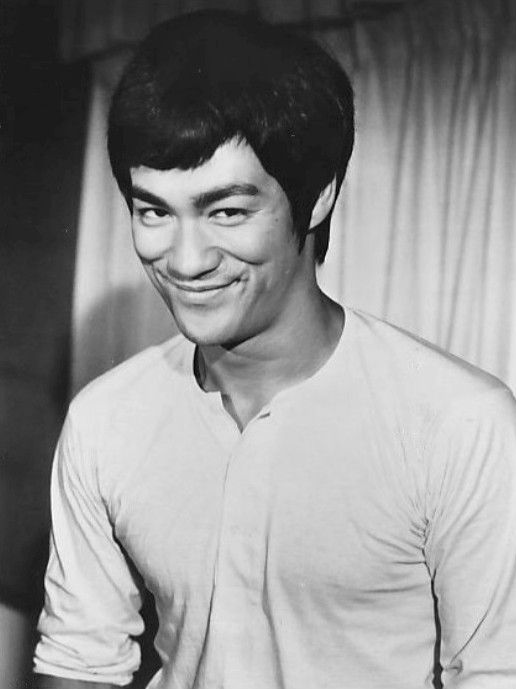Remembering Bruce Lee 李振藩 (November 27, 1940 - July 20, 1973), the man who almost single-handedly brought the ancient Chinese martial arts to world-wide awareness through his riveting moves and mastery of motion, and his charismatic and magnetic personality and screen presence.
Bruce Lee's first film, released as Fists of Fury outside of Hong Kong, exploded onto the world scene in 1971 and had an enormous impact on the awareness of martial arts, which would only increase with the release of his subsequent films, leading up to Enter the Dragon which was the first one produced in Hollywood instead of in Hong Kong and which was released only three days after his mysterious and tragic death at the age of only 32.
This previous post, published on this day in 2011, reflects on the fact that the ancient martial arts of Asia clearly preserve and invoke connections to the heavenly cycles and to the world's ancient wisdom encoded in the myths and in the mysterious monuments found around the globe. I firmly believe that martial arts such as kung fu and Taiji and others may have been given to humanity as a way of connecting with the cycles of the heavens and the earth, and in doing so to reconnect with nature, with the realm beyond that which we can see, and with our own Self.
As I have discussed in numerous previous posts, including this one, this one, and this one, our alienation from our Self leads directly to self-destructive and self-sabotaging behavior, including all kinds of addictions as well as anxiety, depression, and despair. The ancient myths given to humanity, along with ancient disciplines such as meditation, martial arts, Yoga, Tantra, and others, have the ability to help us recover the Self which has been "lost" through the trauma of this life and our integration into society.
We actually see this kind of trauma and alienation from the Self dramatized in many well-known martial arts movies, including the original Karate Kid (1984) and the Jackie Chan remake (2010), in both of which films the protagonist displays anxiety and disconnection -- and so too does the martial arts master himself who helps point the young student towards a path of healing and recovery.
This is important to note because I would argue that the persona of the martial arts master, which Bruce Lee powerfully portrays in film and which he actually achieved in his own life, provides us with a powerful picture of one who is integrated with and in harmony with his or her own Self -- but we should not imagine that they themselves do not also have the trauma of alienation to work through and overcome in their own life.
It is also noteworthy to observe that Bruce Lee's father was also an actor, a performer in a Cantonese opera group in Hong Kong. This previous post explores the celestial connections evident in Cantonese opera, including the understanding that such opera was given and taught to humanity by the gods, that dramatic performance is a form of ritual, and that during the opera itself the actors take on and embody the persona of the gods themselves, who express themselves through men and women. These are very important concepts to carefully and thoughtfully consider at some length for the lessons they can teach us.
I know beyond any doubt that the practice of martial arts can be extremely beneficial to men and women in this life, and that through disciplined practice they can open a path towards the reconnection with and recovery of their own authentic Self. No one can deny that through his life and his film, Bruce Lee made many hundreds of millions of people aware of the incredible gift of the martial arts (perhaps even billions), people who might otherwise have not been aware of this path.
Respect.


